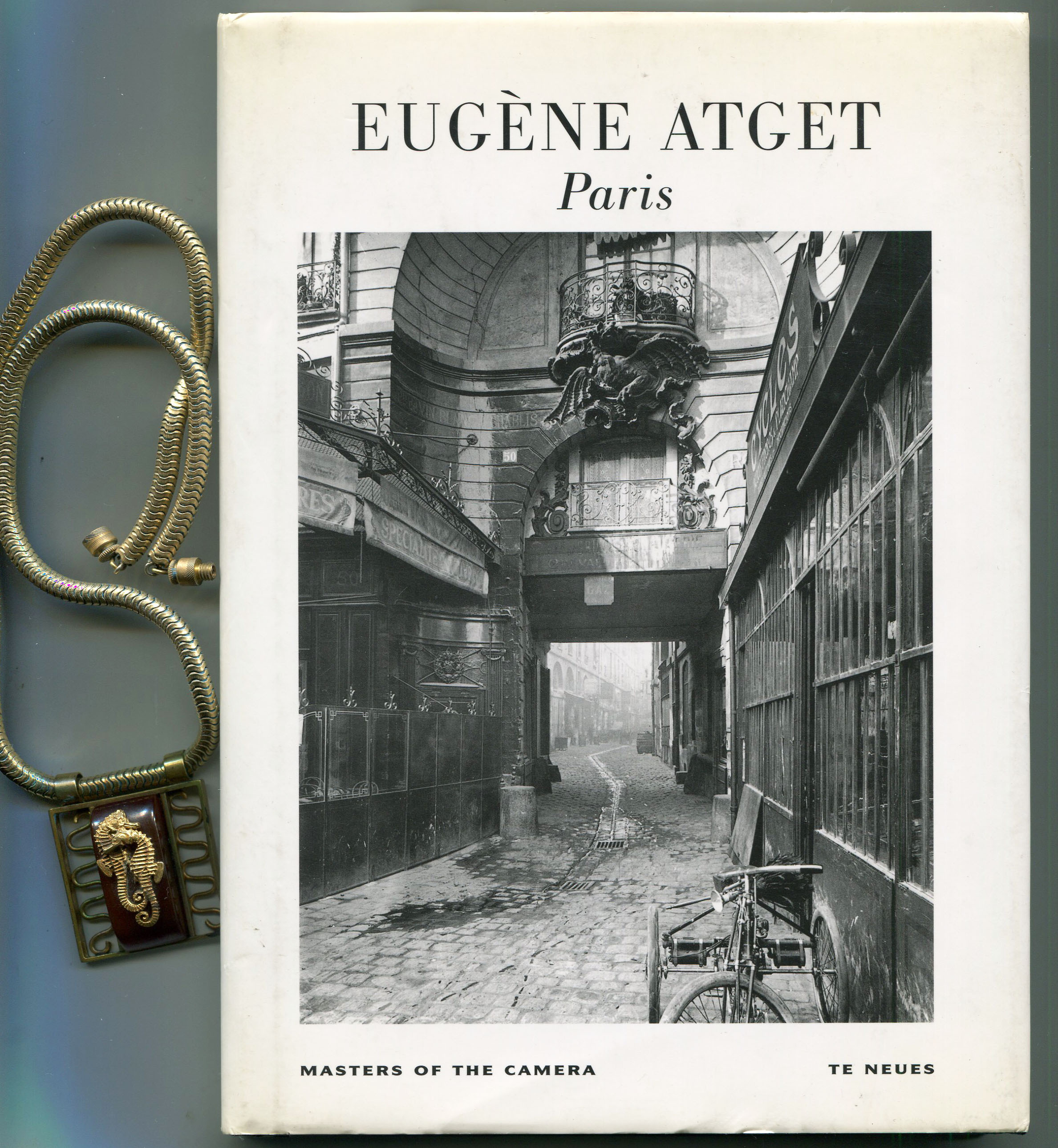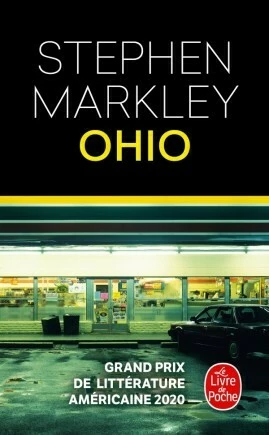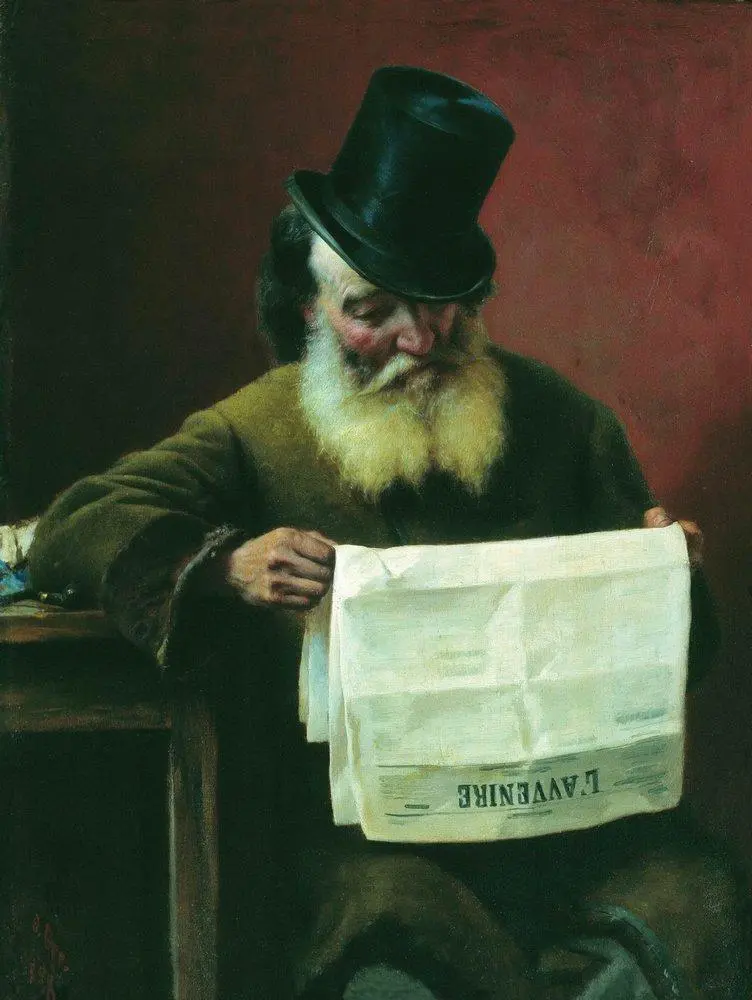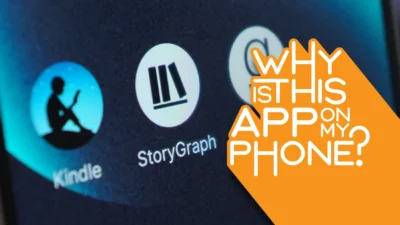📚 J'ai bien aimé cet article... 📖
Entre écrivains européens et américains, une relation inégalitaire et paradoxale
Si les auteurs européens connaissent et lisent leurs pairs nord-américains, le contraire est loin d’être vrai. Enquête sur le rapport des écrivains des Etats-Unis avec le Vieux Continent et sa littérature, à l’approche du Festival America, à Vincennes, du 26 au 29 septembre, dont « Le Monde des livres » est partenaire.
Par Florence Noiville, Le Monde
Publié le 18 septembre 2024
Make America great again »? S’il est un domaine où ce slogan n’a pas cours, c’est bien celui de la littérature. Dans le cœur des lecteurs français, la patrie de Russell Banks (1940-2023), Cormac McCarthy (1933-2023) et Paul Auster (1947-2024) – pour ne citer que ces géants récemment disparus – n’a jamais cessé d’être envoûtante et désirable. Aussi, tous les deux ans, le public accueille-t-il avec ferveur les écrivains nord-américains venus participer au Festival America, à Vincennes (Val-de-Marne).
Cette année, ce grand rendez-vous se tiendra du 26 au 29 septembre, avec comme têtes d’affiche James Ellroy, Lauren Groff ou encore Richard Ford. Originalité du cru 2024 : pour la première fois, les auteurs états-uniens et canadiens (et une autrice mexicaine, Dahlia de la Cerda) rencontreront une trentaine de leurs homologues européens, originaires pour la plupart de France, du Royaume-Uni, d’Irlande, mais aussi d’Italie, d’Allemagne, des Pays-Bas, de Suisse ou d’Espagne.
« La manifestation se déroule entre deux échéances importantes pour les deux continents , explique Francis Geffard, directeur chez Albin Michel de la collection “Terres d’Amérique” et président du festival, qu’il a créé. Entre les élections européennes de juin et celle du 5 novembre aux Etats-Unis, il nous a paru important que le festival soit un lieu d’échanges et de débats entre les écrivains des deux rives de l’Atlantique. » Un siècle après les chefs-d’œuvre de la Génération perdue –lorsque, dans les années 1920, les Hemingway, Dos Passos et Sinclair Lewis venaient chercher l’inspiration à Madrid, Rome ou Paris –, America sera aussi l’occasion de faire le point sur la relation que les auteurs américains entretiennent aujourd’hui avec le Vieux Continent et sa littérature.
A cet égard, les échanges s’annoncent passionnants mais asymétriques. « Il faut avoir conscience du déséquilibre énorme qui existe entre la connaissance qu’on a, en France et ailleurs en Europe, de la littérature américaine, et celle que les Américains ont de la littérature européenne » , souligne Olivier Cohen, fondateur des Editions de l’Olivier. De fait, s’il est difficile de trouver un auteur européen qui n’ait pas été profondément influencé par l’un de ses pairs outre-Atlantique – il faut entendre l’Irlandaise Jan Carson raconter comment ses premiers écrits furent des « mélis-mélos de thèmes et de styles[empruntés à] Richard Brautigan, Raymond Carver et George Saunders » ; ou la Néerlandaise Inge Schilperoord, autre invitée du festival, expliquer pourquoi les Américains (John Fante, A. M. Homes) sont insurpassables dans leurs « peintures de l’aliénation et du vide »… –, si, donc, il est difficile de ne pas trouver un Européen passionné de littérature américaine, l’inverse est loin d’être vrai.
Car les Américains lisent très peu leurs collègues contemporains d’Europe non anglophone. « Ces temps-ci, la littérature venue d’Asie m’intéresse davantage, explique Iain Levison, qui sera présent à America. En Europe, j’aime Andreï Kourkov [l’Ukrainien est lui aussi invité], mais, malheureusement, je n’ai rien lu d’autre récemment… »Le romancier et scénariste Seth Greenland, lui aussi attendu à Vincennes, confesse de même ne connaître que peu d’auteurs européens non anglophones, « à part Houellebecq, Annie Ernaux et Elena Ferrante ».
Le dernier classement du New York Times illustre bien cette méconnaissance de la littérature européenne in the making (« en train de se faire »). En septembre, la « Book Review » du quotidien a demandé à ses critiques (mais aussi à des écrivains et des universitaires) de sélectionner, dans la littérature mondiale, les « cent meilleurs titres des vingt-cinq premières années de ce siècle ». Six seulement étaient signés d’Européens dont l’anglais n’est pas la langue maternelle : l’Italienne Elena Ferrante, le Norvégien Jon Fosse, la Danoise Tove Ditlevsen, la Franco-Iranienne Marjane Satrapi, la Française Annie Ernaux et l’Allemand W. G. Sebald, mort en 2001.
Pourquoi les Américains connaissent-ils si mal la production européenne récente ? Parce qu’ils ne la traduisent pas, ou très peu. Sur l’ensemble des titres publiés chaque année outre-Atlantique, moins de 5 % sont des traductions, contre 20 % à 50 %, selon les pays, dans l’Union européenne. En dépit des efforts des instituts culturels européens, ces maigres 5 % ont tendance à se retrouver noyés dans la masse, sans visibilité. « Les auteurs américains auxquels je parle me disent que leurs librairies ne proposent presque plus d’ouvrages européens » , regrette l’autrice néerlandaise Inge Schilperoord, invitée à America. On chercherait donc en vain, sur les rayons de Barnes & Noble ou ailleurs, un équivalent pour la littérature européenne du riche et passionnant Dictionnaire amoureux de la littérature américaine que signe ces jours-ci le journaliste Bruno Corty (Plon, 612 pages, 28 euros, numérique 20 euros) : ce n’est pas l’amour qui prévaut dans ce sens de la relation transatlantique, c’est plutôt l’indifférence.
Les raisons ? Olivier Cohen raconte en souriant un échange qui l’a laissé perplexe. C’était avec Jonathan Galassi, l’ex-patron de la prestigieuse maison Farrar, Straus and Giroux, à New York. « Un jour, je lui demande pourquoi il ne publie pas tel titre. Réponse : “It’s too French.” L’année suivante, de nouveau dans son bureau, j’avise un roman (à mon sens pas excellent) traduit du français. Je demande : “Pourquoi celui-là ?” Réponse : “It’s sooo French !” » Trop français dans un cas, si délicieusement français dans l’autre… « J’avoue que j’ai renoncé à comprendre ! », conclut-il.
Autre anecdote parlante, celle que rapporte l’écrivaine française Clémence Boulouque, professeure à l’université Columbia (New York), qui publie en cette rentrée Le Sentiment des crépuscules (Robert Laffont, 176 pages, 19 euros, numérique 13 euros). « Récemment, je faisais à l’écrivain américain Joshua Cohen la chronique d’un épisode assez désagréable qui m’était arrivé. Il m’a dit, hilare : “Do the French thing !” Quand je lui ai demandé ce qu’il entendait par là, il a précisé : “Ecrire un récit autobiographique, si possible de façon vengeresse.” Evidemment, c’était une boutade, mais elle est assez révélatrice de la perception américaine de la littérature française : autofiction ou récit de l’intime à la première personne. »
Dans son discours de réception du Prix de la paix des libraires allemands, en 2003, l’écrivaine Susan Sontag décrivait un « antagonisme latent » entre les deux côtés de l’Atlantique, au moins « aussi complexe que celui qui existe entre parent et enfant » . Bill Cloonan, professeur honoraire à l’université d’Etat de Floride, parle, lui, d’un sentiment d’ « infériorité »face à la culture européenne. Un sentiment palpable chez Hawthorne et même chez Melville. Jusqu’à Mark Twain, dit-il, un écrivain américain devait, « pour avoir l’air sérieux », soit « écrire à l’européenne (quoi que cela veuille dire !), soit faire allusion à la culture ou aux techniques littéraires du Vieux Continent ».
Couper les racines. Consciente ou non, cette mise à distance s’inscrirait-elle, encore aujourd’hui, dans le sillage d’un vieux désir d’émancipation ? Au Seuil, l’éditrice Bénédicte Lombardo est plus pragmatique : « Les Etats-Unis sont autosuffisants. Leur offre est si importante que les lecteurs ne cherchent pas autre chose. D’autre part, je crains que seule une petite partie des lecteurs ait une appétence pour ce qui se passe à l’étranger, particulièrement en littérature. » D’après elle, certains lecteurs redouteraient de lire des auteurs étrangers, réputés trop compliqués. «J’ai récemment publié un auteur taïwanais traduit dans de nombreux pays, dont les Etats-Unis. Tous les noms des personnages ont été américanisés, pour plus de facilité. »
Le divorce est-il pour autant consommé ? Pas sûr. Ces temps-ci, un nombre croissant d’auteurs américains regardent en direction de l’Europe, tant la scène littéraire, aux Etats-Unis, leur paraît toxique. En effet, la concentration du marché outre-Atlantique – l’essentiel de l’édition est contrôlé par les « Big Five », cinq groupes qui se livrent une guerre totale – est telle que, plus que jamais, le système fonctionne comme une centrifugeuse. Dan Sinykin, professeur assistant à l’université Emory (Géorgie), montre, dans Big Fiction (non traduit), que ce qui en sort est soit formaté (pour être adapté au cinéma ou en série), soit éjecté. « Si vous n’atteignez pas un certain seuil de ventes, il y a peu de chances que vous publiiez un second roman, quels que soient votre talent et votre travail », expliquait au « Monde des livres » (du 29 mars 2019) l’écrivain Peter Farris.
Depuis cette date, la situation ne s’est guère simplifiée, du moins pour les auteurs de la midlist (« liste intermédiaire »), ceux qui ne sont ni débutants ni auteurs de blockbusters. Les contraintes limitant la liberté de créer se sont multipliées – puritanisme exacerbé, procès en « appropriation culturelle », rôle des sensitive readers, ces lecteurs chargés de débusquer des contenus pouvant offenser certains publics. Dans certains cas, cette injonction de ne pas heurter peut aller loin. Et même cibler un poète latin né en 43 av. J.-C. ! « Dans le tronc commun de l’université Columbia, Les Métamorphoses , d’Ovide, ont été retirées du programme à cause des multiples scènes de viol, explique Clémence Boulouque. Il n’y a, chez Ovide, aucune apologie de la violence sexuelle. Au contraire, il est même possible de dire qu’Ovide donne enfin voix aux victimes. Mais il ne faut pas susciter d’inconfort chez les étudiants. »D’où les fameux trigger warnings, qui doivent signaler à l’avance un passage risquant de mettre mal à l’aise ou de raviver un traumatisme. « Ceci me laisse un peu sceptique et semble représenter un rapport modifié à la littérature, note l’écrivaine . Si la littérature aide à vivre, c’est que, comme la vie, elle ne prévient pas des coups qu’elle vous porte ou des illuminations qu’elle vous offre. »
Autre exemple de difficulté pour les romanciers américains : il serait, selon Iain Levison, devenu impossible d’interroger en profondeur certains effets délétères du capitalisme. « L’Amérique avait une longue tradition dans ce sens, avec John Steinbeck, Upton Sinclair, Erskine Caldwell ou Mark Twain . Curieusement, elle a disparu dans les années 1950. » Il note que les creative writing farms (les « fermes d’écriture créative ») sont toutes « financées par des milliardaires (Guggenheim, Rockefeller), de riches donateurs, de grandes entreprises ou par les dotations des universités ». Cela, assure-t-il, crée un «environnement malsain lorsqu’il s’agit d’avoir une discussion littéraire sur les maux de la société, notamment ceux qui sont liés aux énormes écarts de richesse ».
Enfin, une autre censure sévit dans certains Etats, à l’instigation de groupes de pression conservateurs. En 2023, l’association PEN America a ainsi recensé plus de cinq mille interdictions de livres : en Floride, au Texas, des ouvrages disparaissent des bibliothèques publiques. Dans le comté de Llano (Texas), ce fut récemment le cas pour dix-sept d’entre eux, dont Entre le monde et moi , de Ta-Nehisi Coates (Autrement, 2016 et 2024), Comment devenir antiraciste, d’Ibram Kendi (Alisio, 2020), ou encore une histoire du Ku Klux Klan signée d’un collectif d’auteurs (non traduite).
Au moment où nous l’interrogeons, Jan Carson effectue un « book tour »aux Etats-Unis pour son nouveau recueil de nouvelles, Le Fantôme de la banquette arrière (Sabine Wespieser, 320 pages, 23 euros). En Floride, ce jour-là, elle confirme que le cas de Llano est loin d’être isolé. Elle a, dit-elle, recueilli des témoignages « de première main »expliquant comment « des livres censément subversifs sont retirés des bibliothèques et des écoles. La censure est vivante et fait des dégâts en Amérique du Nord, insiste-t-elle. C’est un problème dont nous devons tous continuer à parler et sur lequel il nous faut rester vigilants ».
Pas étonnant que, dans cet environnement toxique, des auteurs américains se sentent mal à l’aise et regardent vers l’Europe. Pour Jake Hinkson, Peter Farris ou encore Benjamin Whitmer, qui ont trouvé refuge chez Gallmeister, la France est devenue une terre d’asile. Même chose chez Liana Levi pour Eddy Harris, Iain Levison et Seth Greenland. Ce dernier raconte : « Dans mon roman Plan américain (éd. Liana Levi, 2023), l’un des personnages est une Noire. Mais le climat culturel actuel décourage fortement les écrivains blancs de créer des personnages noirs. Mon livre n’a pas été refusé aux Etats-Unis, car, à ce jour, il n’a été soumis à aucun éditeur. Mon agent est convaincu que non seulement il serait rejeté, mais qu’il nous causerait des problèmes à tous les deux. »
« Make America great again » ? Aux yeux des écrivains, c’est l’Europe qui sort grandie de la comparaison. « C’est un privilège pour un Américain que d’être d’abord publié en français, conclut Seth Greenland. Je m’inscris dans une tradition qui va d’ Ulysse [de James Joyce] à L’Amant de Lady Chatterley [de D. H. Lawrence] ,en passant par Tropique du cancer [de Henry Miller]. Et j’en suis fier. »
Tel n’est pas le moindre des paradoxes de la relation Amérique-Europe en littérature. Si les Européens sont peu lus outre-Atlantique, ils sont enviés pour le contexte dans lequel ils écrivent. Dense maillage de librairies indépendantes, de bibliothèques, prix encadré des ouvrages et liberté d’expression donnent au Vieux Continent des allures de havre pour la création. Les auteurs nord-américains seront-ils à l’avenir de plus en plus nombreux à s’y réfugier ? Peut-être. Mais alors, gare : s’ils se laissaient trop imprégner par la culture environnante, ils risqueraient de subir le sort naguère réservé à Paul Auster, à qui certains de ses compatriotes reprochaient d’être devenu... « trop européen ».
https://www.lemonde.fr/livres/article/2024/09/18/entre-ecrivains-europeens-et-americains-une-relation-inegalitaire-et-paradoxale_6322277_3260.html
#vendredilecture #lecture #reading #culture #littérature #literature #usa #europe #france
























